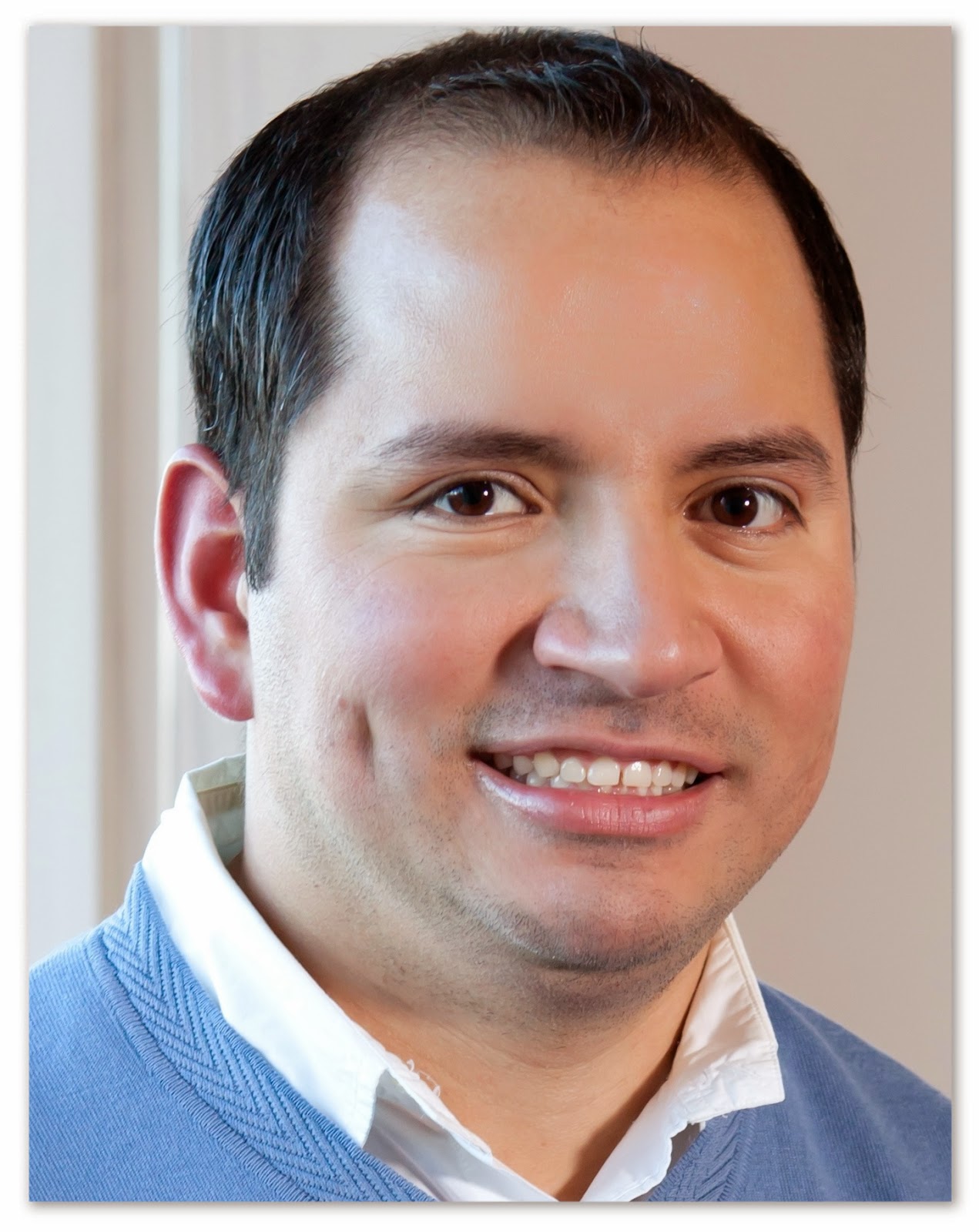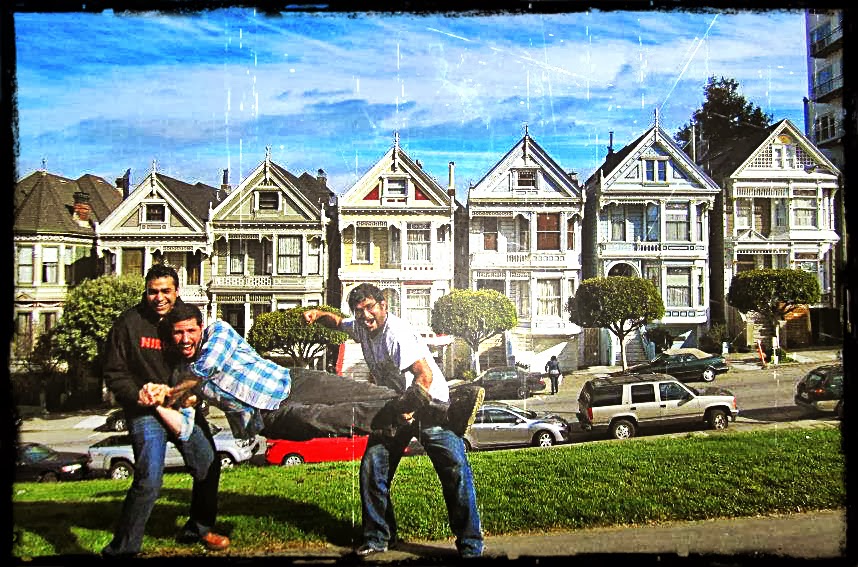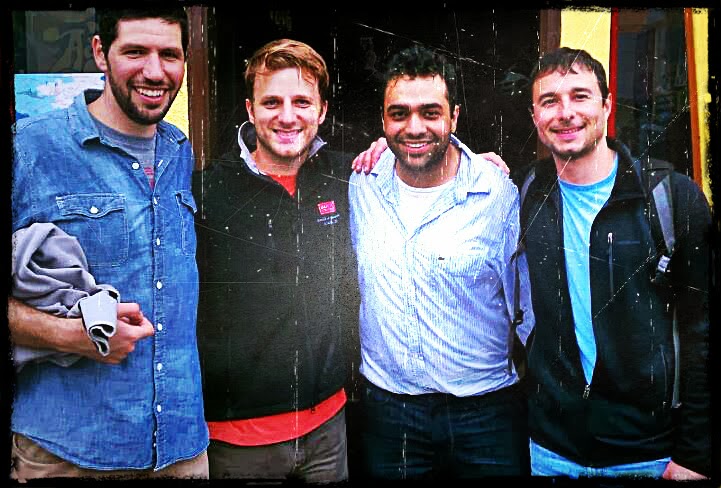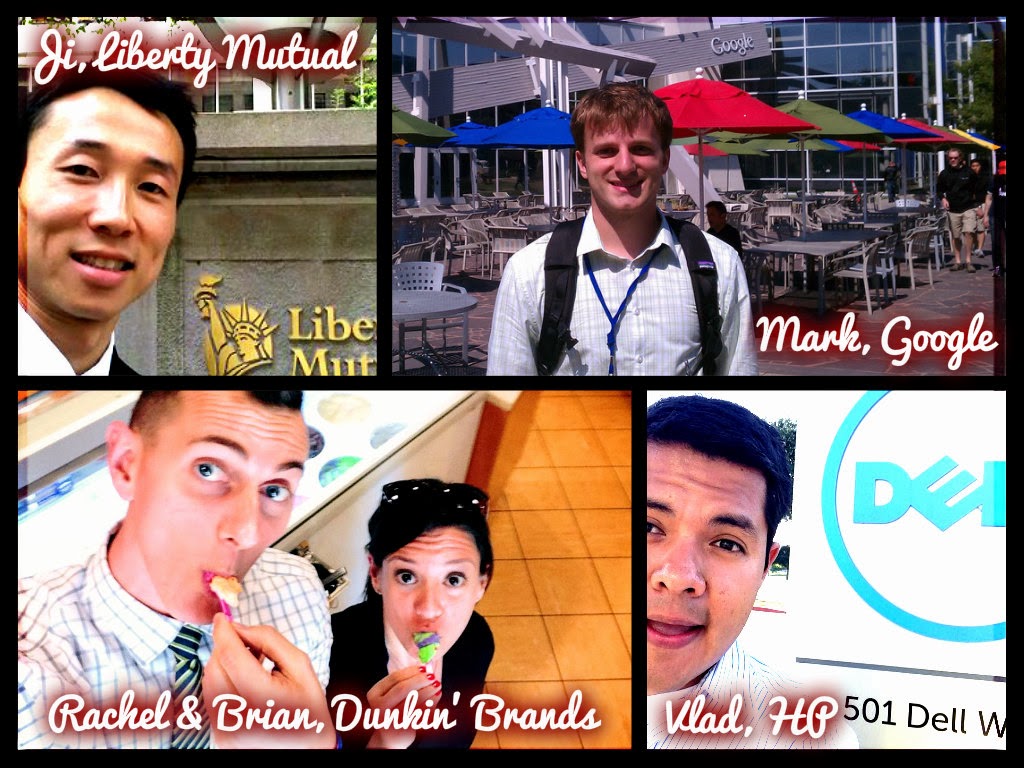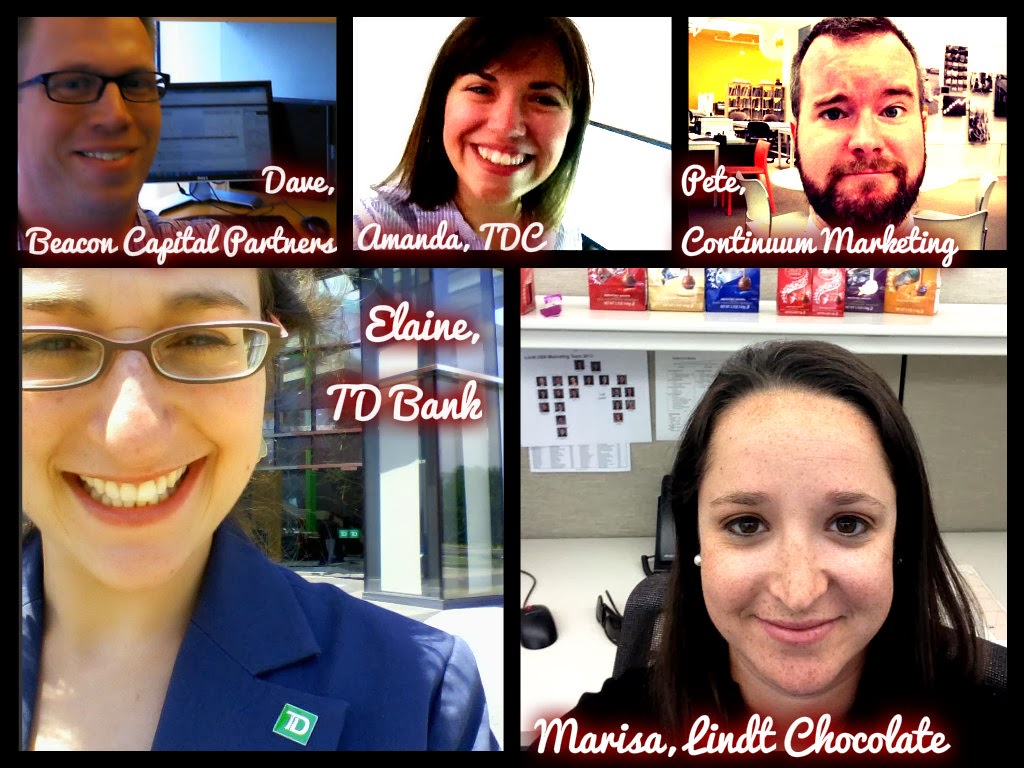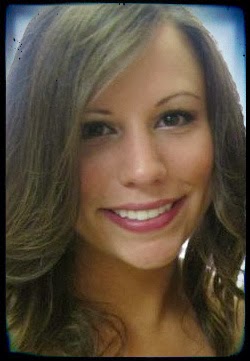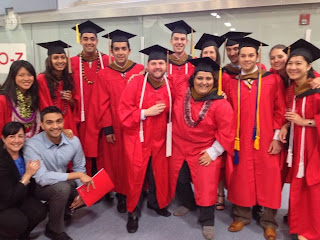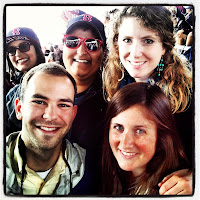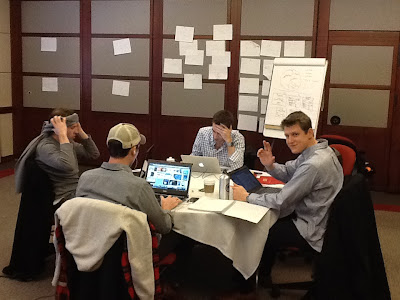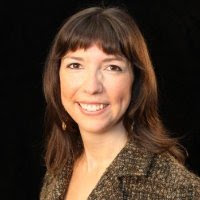Graduate Student Blog
Something New? Something BU! (MSMF)
One year ago, the words ‘Masters in Mathematical Finance’ flashed on my screen as I combed through the vast amount of graduate programs geared towards students with quantitative backgrounds. It felt like every day I woke up I had a new idea about how I was going to use my highly theoretical degree in math to study something with more tangible application and direct relevance to my life. Financial Engineering was an ideal medium by which I could use mathematical modeling and data analysis in the dynamic and exciting context of financial markets. By the end of October, I had taken the GRE, secured letters of recommendation, and submitted my application. Before I knew it, I had submitted my letter of intent and paid my deposit.
My undergraduate school located in Spokane, Washington was nestled in a suburban neighborhood with about 2,200 undergrad students. Suddenly, I was signing up for something much larger, much more fast paced, and much more unknown to me.
Fast-forward several months to the middle of August. I found myself sitting in a Math refresher course where the humidity made my skin instantly sticky as I sat in a room with several other students anticipating the storm that everyone said would hit us and hit us hard. My emotional radar hit several extremes for those first few days: excitement, fear, anxiety, anticipation, happiness, homesickness, you name it! This time provided an excellent transition period with a nice balance of sitting in class, meeting classmates, and most of all, having free afternoons to find footing in such a lively city.
It has been about two months in Boston and school is in full swing. We have been through the math refresher course, were sufficiently oriented and welcomed during orientation week, had a few days to prepare for the beginning of the semester, and now are just on the verge of panic mode as we persevere through difficult problem sets, attempt to identify our career goals, and anticipate midterms. However, the amount of personal, professional, and academic learning that has taken place just in this brief time is absolutely incredible. We have built relationships with faculty, forged friendships with classmates, gained exposure to the industry, and probably had a few “Why on Earth did I sign up for this program?” moments. From what we’ve been told, we are right on schedule! We are fortunate to have a cohort of second year Math Finance students who are willing to advise, guide, shed wisdom, and empathize.

The opportunities that come with the Boston University Mathematical Finance degree are vast – even more than I was aware! Weekly emails signal to us important deadlines, networking opportunities, alternative lectures, and social events. There is a prestige that comes with the Boston University SMG and I am so grateful to someday be apart of the network of BU professionals. The relationships I have formed with classmates and professors are rich and will reap many benefits. Learning alongside classmates who have different intuitions and thought processes encourage different ways of approaching similar problems. There is nothing more inspiring than walking into a classroom that is led by some of the brightest minds in the industry, is unified by the passion to learn math, and that requires us to wrestle with theory and application.
Annika is using an academic background of mathematics and a passion for financial markets to leverage career opportunities in quantitative portfolio management or risk management. Annika enjoys cooking new food, drinking coffee, running, exploring Boston, and playing Sudoku.
My exciting -working- summer in Boston with Education Pioneers!
3 Steps to Landing a Silicon Valley Internship from Boston
3. Classmate Connections
You can never stop networking. I got the chance for the informational interview by reaching out to all of my SMG classmates who had LinkedIn connections to the organization. People at SMG really are excited to help each other, so the clearer you can articulate your goals, the more likely you are to find a friend who can put you on a path to landing that dream internship. (Photo: damp after a foggy bike ride across the Golden Gate Bridge with fellow SMG Bay Area interns Mark, Adhiraj and Jon. This pic also proves how few clothes I brought with me for the summer.)
A Peek into the Summer Lives of 10 BU MBAs!
Trading on the Beach
 Two semesters down and one to go. The Boston University MS in Mathematical Finance program has been a challenging yet rewarding endeavor for my academic and professional career. I was fortunate to receive an amazing summer internship offer at NextEra Energy as an Options Desk Analyst located in tropical Juno Beach, Florida. Through the invaluable help of our Executive Director, Ahmad Namini, and Corporate Relations Director, Cristine Nigro, 98% of first year MSMF students secured summer internships with high-quality firms across the country and abroad.
Two semesters down and one to go. The Boston University MS in Mathematical Finance program has been a challenging yet rewarding endeavor for my academic and professional career. I was fortunate to receive an amazing summer internship offer at NextEra Energy as an Options Desk Analyst located in tropical Juno Beach, Florida. Through the invaluable help of our Executive Director, Ahmad Namini, and Corporate Relations Director, Cristine Nigro, 98% of first year MSMF students secured summer internships with high-quality firms across the country and abroad.Aside from the white sandy beaches, sky blue ocean and perfectly groomed golf courses of Southeast Florida, life on a trading floor was quite the opposite of the relaxing scenery. NextEra Energy is a leading producer and marketeer of renewable and clean electricity. With the worlds largest wind power generation fleet along with natural gas and nuclear generation, they operate 43,000 MWs of electricity across the country. That is enough electricity to power around 40 million homes! The job of the trading floor at NextEra is to optimize the margins of their assets as well as take advantage of our leverage in the electricity and natural gas markets.
 Arriving on the first day, the trading floor was exactly as I imagined it with rows of desks, traders with headsets talking with exchanges and clients, along with up to ten computer screens at each station stacked on one another. It was certainly an intimidating experience especially not knowing much about the electricity market.
Arriving on the first day, the trading floor was exactly as I imagined it with rows of desks, traders with headsets talking with exchanges and clients, along with up to ten computer screens at each station stacked on one another. It was certainly an intimidating experience especially not knowing much about the electricity market.However, within days, I was knee deep within different projects and analytics on the Options Desk. By applying many of the learned concepts from the MSMF program, I was able to derive implied volatility skews, deltas of our bullet options and price unit-contingent deals for counterparties across the country. Beyond that, I also spent the majority of my time working on a proprietary trading model for electricity futures at the Mid-Columbia power hub. This model backtested extremely well and the company is looking to implement it in their trading book this Fall.
Near the end of my internship, I felt accomplished with the value that I was able to bring to the company over the three months. As a part of the program, all of the interns presented their summer work to the CEO and CFO of the company. Shortly after my presentation, I was offered a full time position at the company as a trading analyst on the trading floor. I have accepted the offer and am very excited about starting my career with NextEra Energy in January.
When I arrived back at Boston University in late August, I have heard many great internship success stories from my colleagues. The program at BU has equipped us with the tools it takes to be successful in the industry. With the technical skills and the soft skills, we become an invaluable asset to financial firms who are striving for students to be able to both produce and explain the complicated quantitative work we do. This semester will be exciting as my classmates interview and select which company they will be taking their talents to. I am confident graduates of the Boston University MS in Mathematical Finance program will continue to be leaders in the quantitative finance industry for years to come.
Living In the Far East
 The Boston University One-Year International MBA (IMBA) program has found a great recipe for creating strength amongst a diverse group and expanding leadership acumen. This past summer, my twenty-five classmates and I lived in China, in the same apartment complex, engaging in rigorous course study. We were provided the opportunity to live in Shanghai, one of the fastest growing cities in the world, and Beijing, a city steeped in history and tradition. My cohort is comprised of students from Chile, Panama, Mexico, Peru, India, Indonesia, Thailand, Hong Kong, Taiwan, China, Russia, Israel, Germany, and the USA. Even though the IMBA is an accelerated program, we always found time to have fun and explore all that China had to offer while also getting to know each other’s cultures. Afterwards, we had a group that considers each other to be a “second family” due to the incredibly unique experiences we have shared.
The Boston University One-Year International MBA (IMBA) program has found a great recipe for creating strength amongst a diverse group and expanding leadership acumen. This past summer, my twenty-five classmates and I lived in China, in the same apartment complex, engaging in rigorous course study. We were provided the opportunity to live in Shanghai, one of the fastest growing cities in the world, and Beijing, a city steeped in history and tradition. My cohort is comprised of students from Chile, Panama, Mexico, Peru, India, Indonesia, Thailand, Hong Kong, Taiwan, China, Russia, Israel, Germany, and the USA. Even though the IMBA is an accelerated program, we always found time to have fun and explore all that China had to offer while also getting to know each other’s cultures. Afterwards, we had a group that considers each other to be a “second family” due to the incredibly unique experiences we have shared.  My second takeaway from my China experience was the art of negotiation. I always felt a little uncomfortable negotiating but I knew it was a valuable asset in the business world. I found that my international classmates are extremely good at negotiating because often it is a regular part of their culture. They taught me that negotiation requires a thought out strategy and having an understanding of when to walk away. My classmates coached me through leveraging the power of indifference to negotiate a fair price. In my time spent negotiating for goods, my classmates also taught me that there is always a real decision maker. Whether it’s a business owner or club promoter, pinpointing the person in power makes negotiations more productive.
My second takeaway from my China experience was the art of negotiation. I always felt a little uncomfortable negotiating but I knew it was a valuable asset in the business world. I found that my international classmates are extremely good at negotiating because often it is a regular part of their culture. They taught me that negotiation requires a thought out strategy and having an understanding of when to walk away. My classmates coached me through leveraging the power of indifference to negotiate a fair price. In my time spent negotiating for goods, my classmates also taught me that there is always a real decision maker. Whether it’s a business owner or club promoter, pinpointing the person in power makes negotiations more productive. 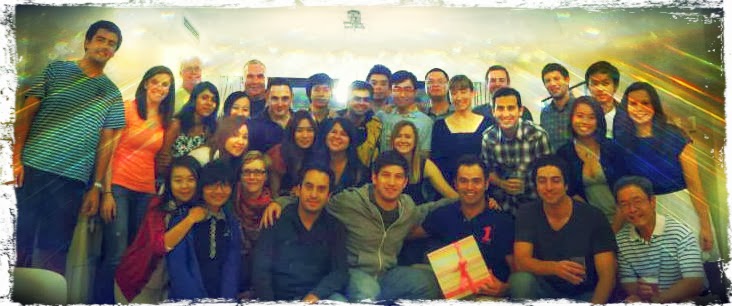 Mark Twain said, “Travel is the death of ignorance.” After 3 months of immersion in China, I am more knowledgeable about the complexity of Chinese life and the beauty of interconnection among truly diverse cultures. I developed relationships that are so deep it’s hard to imagine these people haven’t always been a part of my life. I acquired skills that I never knew I could. I saw some of the greatest wonders of the world and I learned about China firsthand, this social and political powerhouse that previously I’d only perceived from afar. The International MBA program is challenging, but I can guarantee its academic and social recipe will make your life much richer than you ever expected.
Mark Twain said, “Travel is the death of ignorance.” After 3 months of immersion in China, I am more knowledgeable about the complexity of Chinese life and the beauty of interconnection among truly diverse cultures. I developed relationships that are so deep it’s hard to imagine these people haven’t always been a part of my life. I acquired skills that I never knew I could. I saw some of the greatest wonders of the world and I learned about China firsthand, this social and political powerhouse that previously I’d only perceived from afar. The International MBA program is challenging, but I can guarantee its academic and social recipe will make your life much richer than you ever expected. Final Thoughts from Outgoing Graduate Student Council President, Sonal Dhingra
P&G Gillette Sustainability Challenge
Post by:
Gilberto Millares
IMBA 2013
Some of Procter &Gamble’s sustainability goals for the future include completely eliminating the waste they currently generate, using only renewable energy in all their facilities, and having environmentally-friendly products and packages. As you might guess, such endeavors present an extremely difficult challenge for a global company, so they are constantly looking for ways to make marginal or disruptive changes in their operations that allow them to be closer to achieving these goals. One of these ways is to sponsor the P&G Gillette Sustainability Challenge, which brings together multi-disciplinary teams from different Boston University schools and challenges them to come up with ideas that might be applied in their operations.
On April 12, eight teams, consisting of undergrad and graduate students from the schools of Engineering, Public Policy, Management and Biomedical Engineering, among others, had the opportunity to showcase their findings to a group of managers from P&G Gillette, Veolia and NSTAR. We presented different ideas that would allow P&G to increase their renewable energy consumption at the South Boston Gillette site by making a business case for each proposed project.
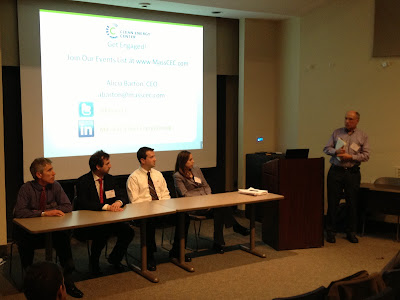 |
| The judging panel from P&G Gillette, Veolia, and NSTAR |
While the format differed a bit from the standard case competition, the results were just as meaningful. Rather than diving into the project for 48 hours, we were given two weeks to find different approaches to help them achieve their goals. And even though it might sound like more than sufficient lead time, we had to fit several seminars into our busy schedules to learn about energy projects throughout the country and the world, research technologies that are being implemented in the industry, and find ways to link business and engineering aspects for each submitted idea—no easy task!
 |
| The winning team and judges pose for a photo |
Finally, after all the teams had presented their ideas, we had a small reception as the judges were making the final decision. First place was awarded to a team consisting of MBA and IMBA students, as well as LEAP, Mechanical Engineering and Public Policies students, who will now have the opportunity to present their pitch to a group of Gillette’s top managers. However, I think the most rewarding aspect of the competition was working with a truly diverse group of people that mimics the diversity and complexities of the business world.
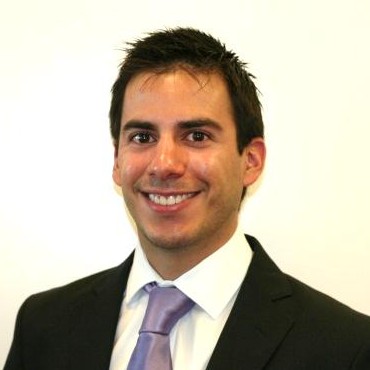 Gilberto Millares is an International MBA student with experience in strategy and operations consulting. In his spare time he loves watching indie movies and cooking “real” Mexican food.
Gilberto Millares is an International MBA student with experience in strategy and operations consulting. In his spare time he loves watching indie movies and cooking “real” Mexican food.
Broomball!
Post by:
Sapna Saxena
MS-MBA 2014
We spend a large portion of the day at SMG – whether in class, team meetings, the library, or at the SMG Starbucks grabbing much-needed coffee. We connect with our classmates through class discussions and over a drink during Thirsty Thursdays and other social gatherings. Conferences are nonstop and networking builds professional connections that further our experience here at Boston University.
But let me tell you where the magic really happens.
Broomball.
I didn’t realize many universities do not offer broomball as an intramural sport – and so when my classmates asked what broomball is, I jumped at the opportunity to explain it to them.
For those of you who don’t know, broomball is a sport similar to ice hockey. You wear a helmet, carry a stick, and, along with your teammates, you aim to score goals by hitting a ball into a tended net. There is just one thing...
You play in your sneakers.
 |
| Shreya Shah (MBA 2014) passing the ball to either Kyle Adelman or Vineesh Plakkot (both MBA 2014)...you can’t really tell. |
The result: Everyone falling on top of one another and crashing into the boards. Never played before? No need to worry, as you’re essentially on the same playing field as your teammates-- hardly anyone comes to the game better than a beginner. Your athletic prowess has no bearing on how well you’ll do at broomball because, frankly, just about everybody wipes out and lands on the ice as they attempt to one-time the ball into the net (the bruises show up the next morning).
 |
| Falling hard on the ice. Yep, that’s me. |
Tempting, I know.
In all of its ridiculousness, broomball is some of the most fun I’ve had since business school started.
After spending hours performing marginal benefit analyses, preparing strategy cases or researching a company for my summer internship, it’s a nice feeling knowing that we can all get together, run around on an ice rink, play against the undergraduates and have a TON of laughs. It’s a great way to bond, relieve stress, exercise and connect with classmates from other cohorts.
To me, broomball offers up another opportunity to get to know the people who are joining the network you develop in business school – just not with the formality of conferences or the feel of most standard organized networking events. Competition is always healthy, and to take to that competition as a united team (albeit bruised and sore) against the undergrads is a necessary and, well, gratifying experience.
 |
| Mark Grimm, Mike Greene and me (all MS-MBA 2014) at the bench. |
You go to business school because you want to expand your networks, acquire skills you don’t have, and move forward along your personal and professional paths. Interviews and case-prepping are important, and will always be a part of the b-school life. But it’s good to have to an outlet to remind you that fun, regardless of how old you are, is also important. For me and many of my classmates who make the weekly trek to Walter Brown Arena, that fun lies on the broomball ice.
 |
| Team picture: Kyle Adelman, Shreya Shah, me, Nina Desai, Marisa Porter, Vineesh Plakkot, Mark Grimm, Paul Uncanin and Mike Greene (all MBA 2014). |
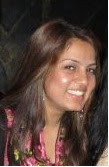 Sapna is a first year MS-MBA student concentrating in Marketing. Her most recent experience comes from the startup world, where she spent two years as a market strategist exploring new growth opportunities for her company. When she's not getting her classmates to come out to Cohort Cup events (she's the Cohort B representative), she continues her search for the best Indian and Sichuan restaurants in Boston.
Sapna is a first year MS-MBA student concentrating in Marketing. Her most recent experience comes from the startup world, where she spent two years as a market strategist exploring new growth opportunities for her company. When she's not getting her classmates to come out to Cohort Cup events (she's the Cohort B representative), she continues her search for the best Indian and Sichuan restaurants in Boston.
Grand Business Challenge in Digital Health
Post by:
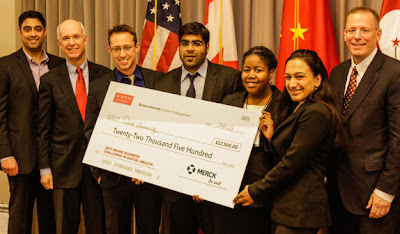 |
| Congratulations to the team from Fuqua! |
![]() Lara is a 2nd year MS-MBA student who has lived most of her life in Norway, despite having an American passport. Before coming to BU she worked in IT, Sales and Marketing and is hoping to find an opportunity to do something cool in a technology firm - UX, product development, or something in those veins. One of her biggest surprises over the past two years is learning how fun it is to play broomball!
Lara is a 2nd year MS-MBA student who has lived most of her life in Norway, despite having an American passport. Before coming to BU she worked in IT, Sales and Marketing and is hoping to find an opportunity to do something cool in a technology firm - UX, product development, or something in those veins. One of her biggest surprises over the past two years is learning how fun it is to play broomball!







